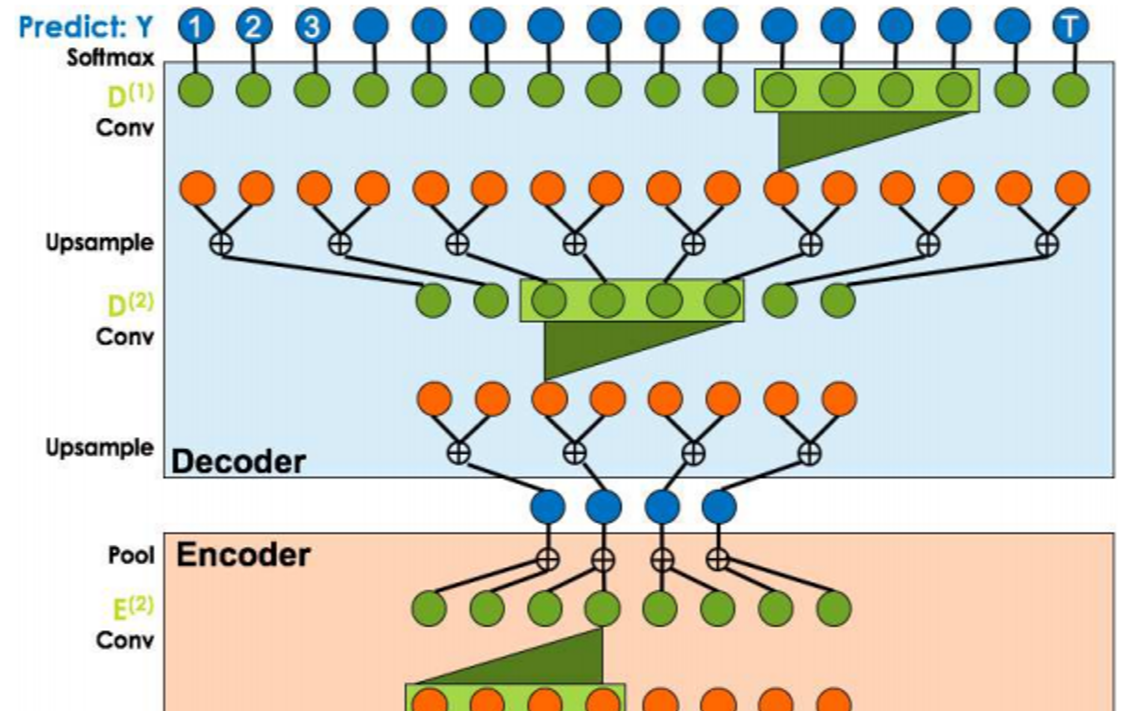This post reviews the latest innovations of TCN based solutions. We first present a case study of motion detection and briefly review the TCN architecture and its advantages over conventional approaches such as Convolutional Neural Networks (CNN) and Recurrent Neural Network (RNN). Then, we introduce several novels using TCN, including improving traffic prediction, sound event localization & detection, and probabilistic forecasting.
A brief review of TCN
The seminal work of Lea et al. (2016) first proposed a Temporal Convolutional Networks (TCNs) for video-based action segmentation. The two steps of this conventional process include: firstly, computing of low-level features using (usually) CNN that encode spatial-temporal information and secondly, input these low-level features into a classifier that captures high-level temporal information using (usually) RNN. The main disadvantage of such an approach is that it requires two separate models. TCN provides a unified approach to capture all two levels of information hierarchically.
The encoder-decoder framework is presented in Fig.1, where further information regarding the architecture can be found in the first two references (at the end of the post). The most critical issues are provided as follows: TCN can take a series of any length and output it as the same length. A casual convolutional is used where a 1D fully convolutional network architecture is used. A key characteristic is that the output at time t is only convolved with the elements that occurred before t.

Lea et al. (2016)
The buzz around TCN arrives even to Nature journal, with the recent publication of the work by Yan et al. (2020) on TCN for weather prediction tasks. In their work, a comparative experiment was conducted with TCN and LSTM. One of their results was that, among other approaches, the TCN performs well in prediction tasks with time-series data.
#data-science #time-series-forecasting #cnn #machine-learning #deep-learning #deep learning
